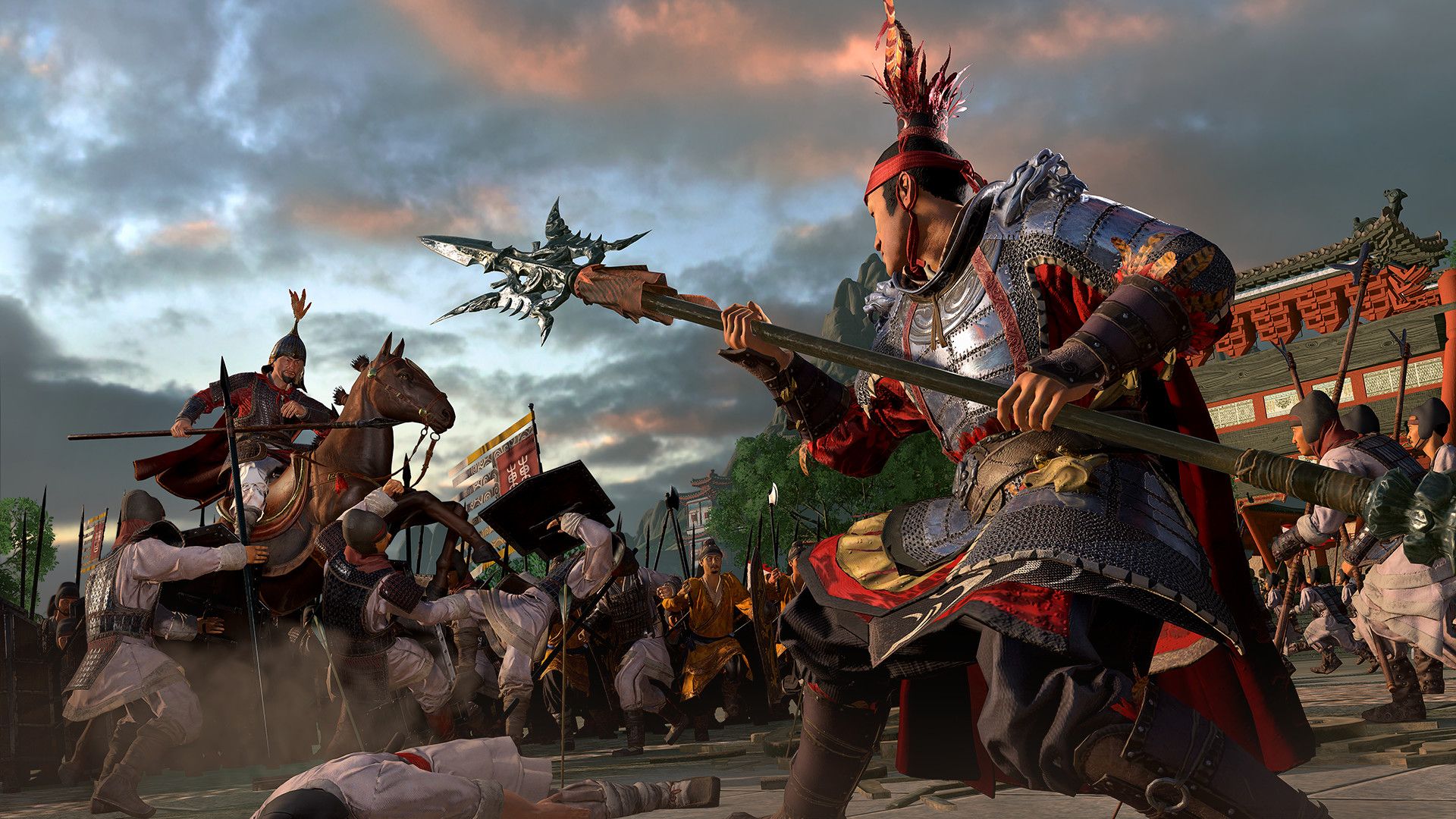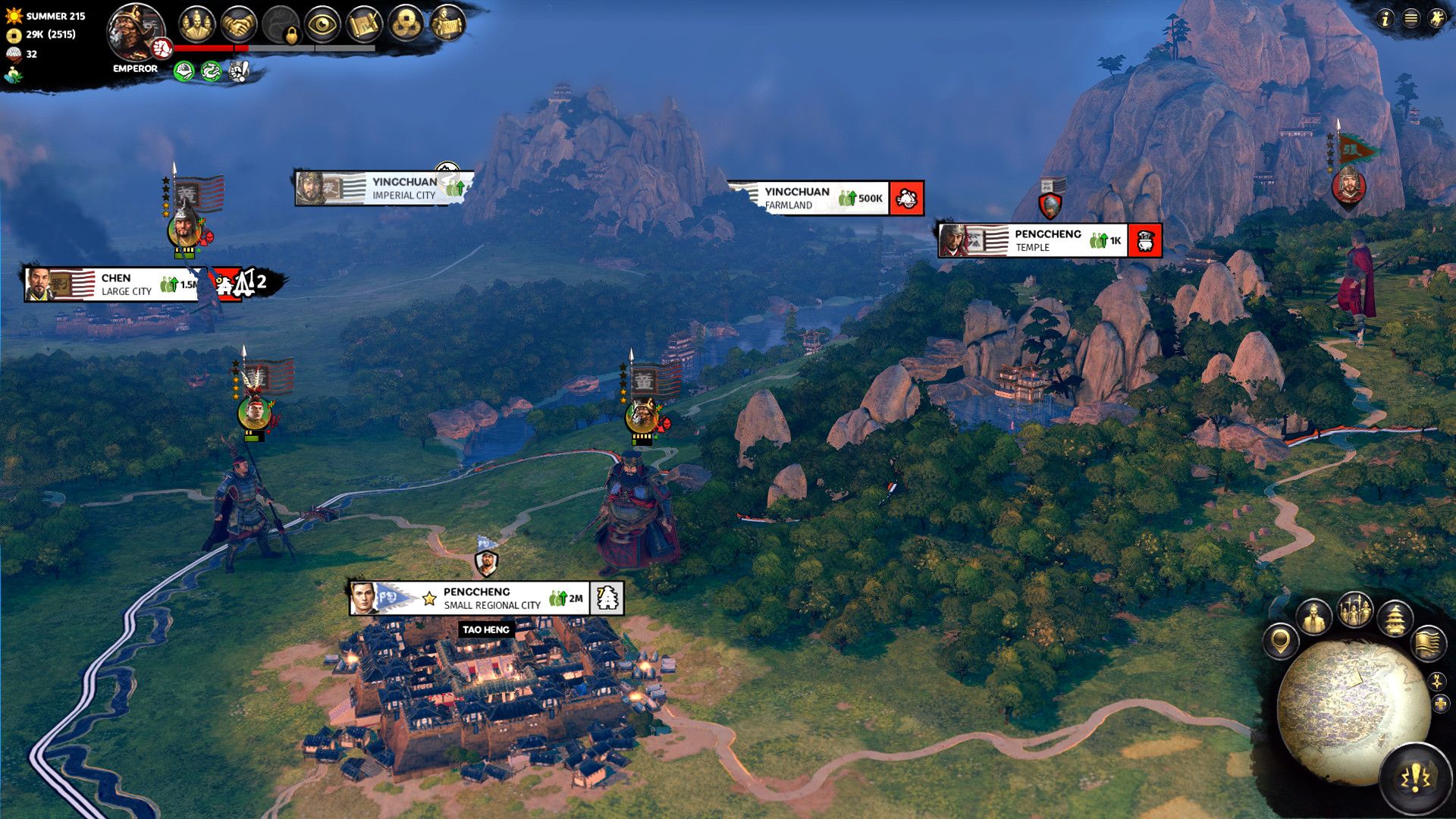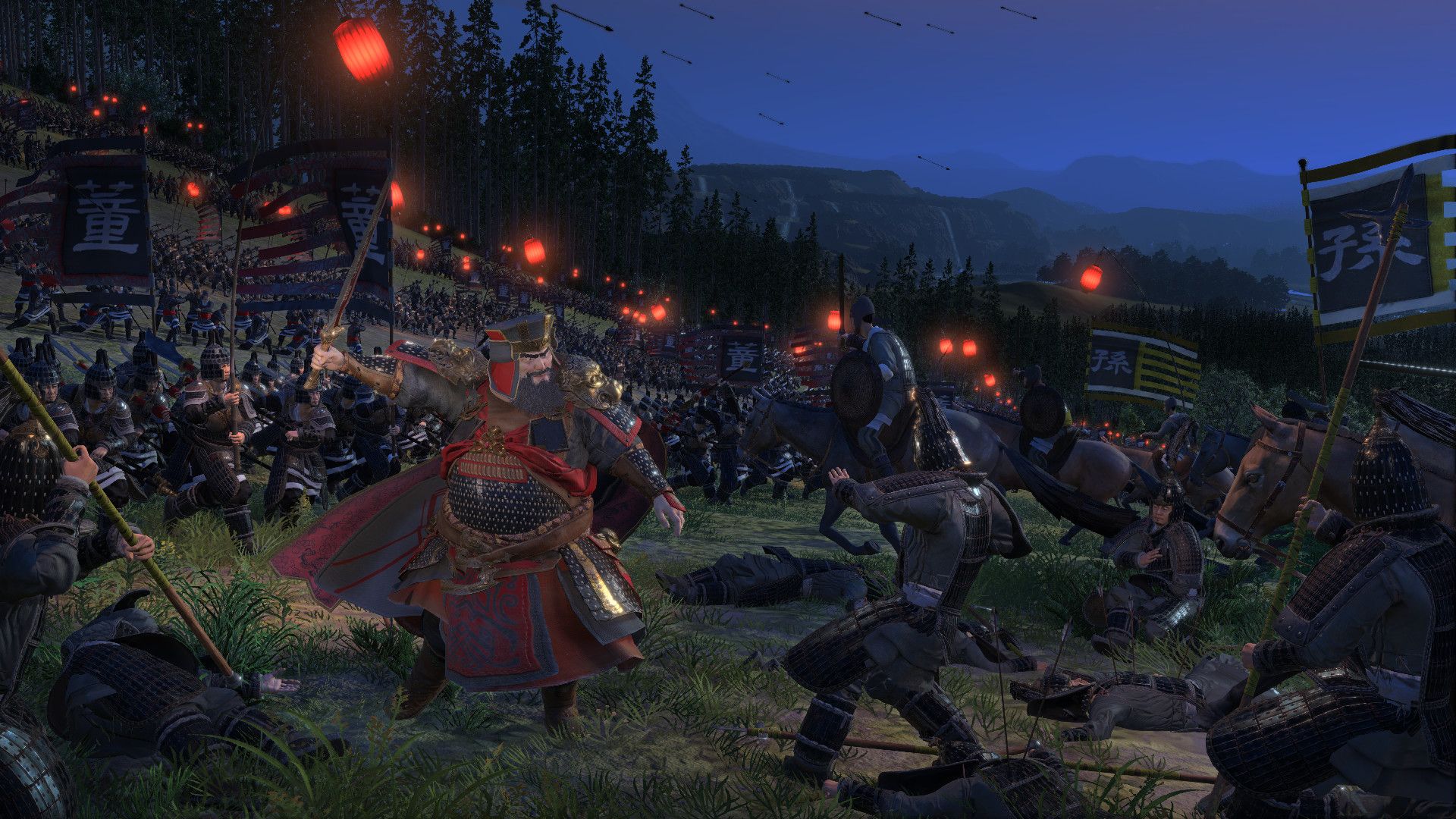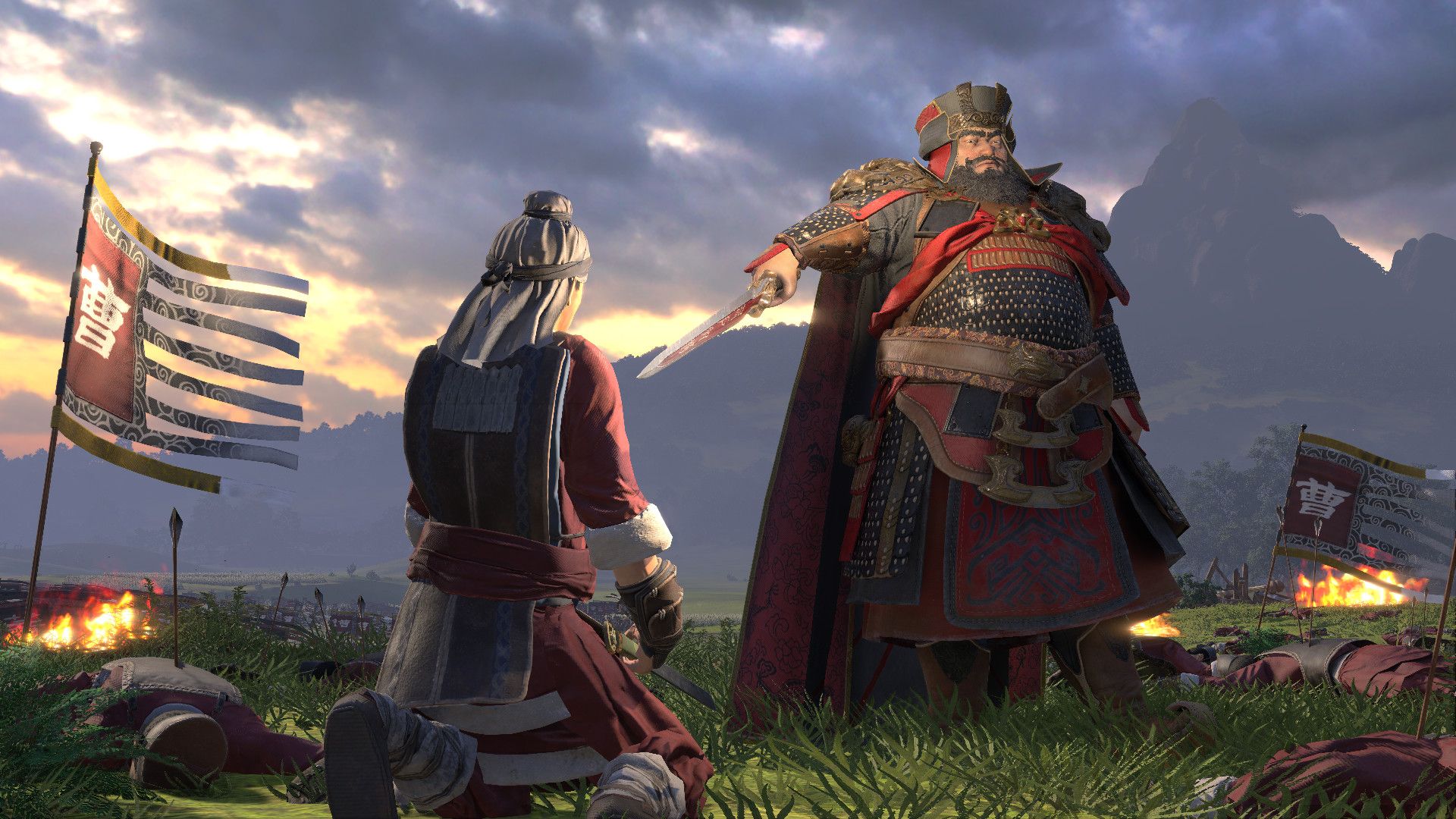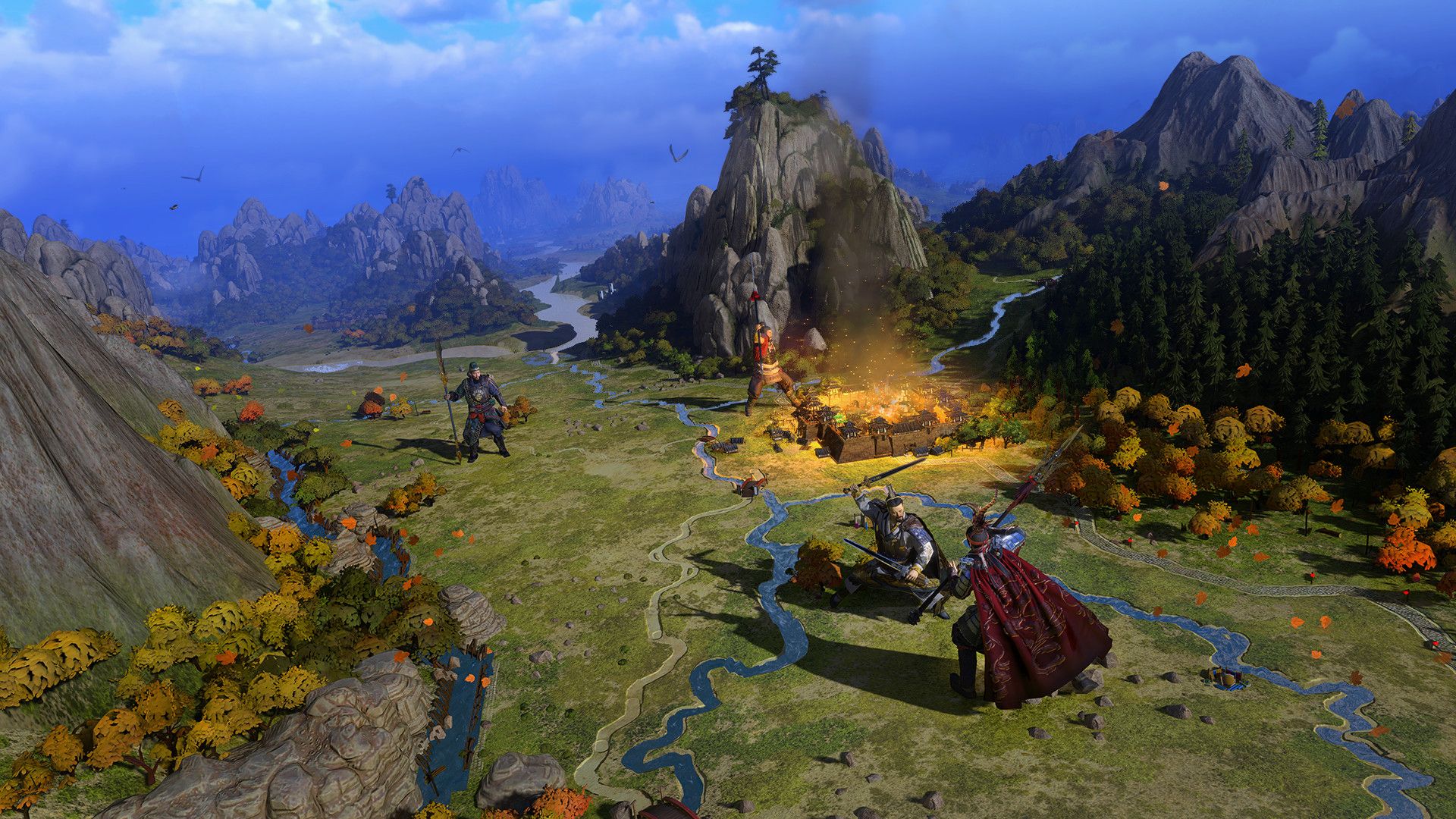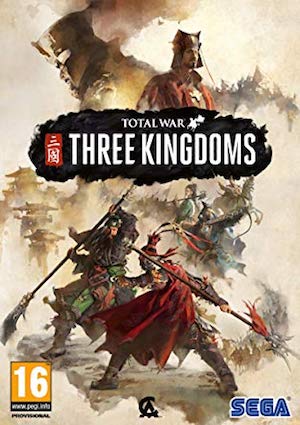
Total War: Three Kingdoms, The Creative Assembly’s latest turn-based building and politicking meets real-time strategy combat title, is a testament to the tumultuous times of its era. The Romance of the Three Kingdoms is abundant with characters – icons and heroes who cemented their names in history through warfare as much as diplomacy and shady dealings. While the combat and overall structure may be tried and true to the developer’s previous entries, Three Kingdoms presents a compelling strategic journey for also seeking to expand and conquer. Of course, it doesn’t hurt that the Total War foundation is still rock-solid with sweeping battles of yore looking as magnificent as always.
It’s the year 190 CE and Dong Zhuo has been a very bad boy. The warlord seized control of Luoyang, massacred the court’s officials and essentially burned everything to the ground. Several factions with their own warlords step up to the task of bringing China back to some kind of stability or just becoming the Emperor and ruling over all. You can choose from Gongsun Zan for more reinforcement range and additional armour for shock cavalry at the cost of administrative positions; Cao Cao for more military supplies, more diplomatic influence and manipulation; and eventually, Dong Zhuo himself who gains Intimidation from killing characters and winning battles to keep his empire in line. Want to just annihilate the Han dynasty all on your lonesome, accruing more XP for characters with each bloody battle won? The bandit queen Zheng Ziang is the way to go. With 12 warlords overall (and more on the way), each with their own unique play-style, there’s plenty to keep you busy.
"Some generals will grow closer and deepen their relationship. A warlord may even marry one of their generals and have a child, thus continuing the family bloodline."
Furthermore, the personalization afforded to each is pretty well done. Each warlord has their own starting cutscene, background, unique traits and abilities, with more abilities to unlock down the line. They each carry their own noteworthy characters and have special relationships with them. There’s also great flexibility in how you utilize those characters. One day, a general could be fighting on the battle-lines and taking down swathes of soldiers. The next, you could appoint them as a city’s administrator with their own follower (who confers different benefits as well). The new Guanxi system also creates an intriguing layer of cooperation between the generals and their warlord.
Some generals will grow closer and deepen their relationship. A warlord may even marry one of their generals and have a child, thus continuing the family bloodline. Of course, Guanxi can also influence two allies hating each other, other noteworthy characters and so on. You may not have a problem with Sun Jian as Cao Cao but Xiahou Yuan may look upon him as a passers-by – less important than a stranger. The benefit of having these deepened relationships is that you feel like you actually have allies rather than simply commanding authority heads around.
Overtime, you come to appreciate Guan Yu for his honorable nature while cleaving through hordes or foes and become endeared to Zhang Fei’s drunken brawling. That is, until the latter goes a little overboard and inflicts punishment on the local citizenry. Make sure to keep those generals happy though as they could potentially ditch you if demands aren’t meant. The same goes with ambitious nobles promoted into positions of power and left unchecked, causing a civil war in the process.
Throughout Total War: Three Kingdoms, random events will also pop up. You could suddenly find yourself in possession of an important figure after winning a battle and choose to execute, ransom or hire them. Your warlord may decide to showcase how vigilant he is to his army by hiring a servant to pose as an assassin…and when the assassin is caught in the ensuing ambush, choose to execute him. Why? Well, maybe you really want the Reviled Lord trait to show how merciless you are. Maybe you don’t feel like paying a bit of money to let him be. Initial Dilemmas will also eventually crop up – these are game-changing decisions like accepting another warlord’s request and starting war with an enemy coalition or denying it, causing that warlord to hate you (and maybe attack you at some point). Some decisions will also influence whether you follow the story or continue expanding on your own as events play out.
"One interesting deal allowed me to take command of a faction’s military in exchange for regular payments. Then again, you can also sign a non-aggression pact to have everyone leave you alone."
Political intrigue is rife throughout the game. Trade offers, peace offers, coalition offers and so on eventually begin to bombard you. Warlords may ask you to marry off different court nobles and generals for some items, money or other benefits. It’s an interesting balance – staying on Kong Rong’s good side may help provide some safety from a neighboring threat but it could also give him breathing room to take Yuan Shao’s territory when he’s weak. In one game as Cao Cao, teaming with Yuan Shao as part of a coalition let me mind my own business since he’d go around conquering other settlements.
The Diplomacy system definitely has its share of intriguing options such as declaring peace, making a certain faction your vassal, or forming an alliance to call upon another faction when entering war. One interesting deal allowed me to take command of a faction’s military in exchange for regular payments. Then again, you can also sign a non-aggression pact to have everyone leave you alone.
As you expand your empire, keeping different cities and settlements in line to benefit from a steady supply of recruits and military provisions is also important. It’s important to keep your citizens happy through agriculture but also to reap as much as possible from taxing and commerce. Reforms come up every five turns, providing benefits such as increased administrative positions (which can also be unlocked upon ascending the ranks), reduced construction costs, more seasonal retinues, and so on. Approval ratings could drop if the citizenry isn’t kept fed but a tax exemption, at the cost of money earned, helps stave that off.
You’ll need certain reforms to upgrade different buildings. It depends on the needs of the empire – from more war supplies to increased resources for maintaining your armies. Placing different nobles on assignments helps decrease construction time, corruption and other effects, thus increasing the efficiency of tasks. Cities can also be upgraded to increase the amount of population, building slots and whatnot. The overall task of building is pretty simple – you have a set amount of slots for each city and can’t really add more slots to a mine or farmland without first claiming the main city that governs it. Furthermore, you’re not managing your citizens’ needs too heavily or getting too involved with their desires like, say, Anno 1800.
"I’m mixed on the whole Duel mechanic, which allows your general or Faction Leader to challenge the enemy commander to a one-on-one fight."
After all, the name of the game is “Total War”. How does the combat fare? If you’re a fan of the series, much of this will look familiar. Cavalry, Lancers, Infantry and Archers all return, each having their own strengths and weaknesses against each other,. As such, having a balanced composition of soldier types is necessary but Total War: Three Kingdoms revamps things by introducing retinues. You can have up to six retinues for your warlord who will stay until dismissed or the warlord dies. So even if you lose a battle, you can regroup, refill the ranks and go again. It reinforces unit choice and makes each feel more special – more importantly, it ensures that you don’t outright lose a precious retinue that you’ve spent all game building up.
Setting up and taking advantage of terrain, especially to ambush enemy units or counter-attack, is important. Knowing when to switch archers into melee mode when their arrows run dry or creating a defensive formation is also key to minimizing losses. Eventually, skirmishes can break down and keeping track of who’s targeting what, which general is chasing which fleeing army and so on can be a little tough but it’s nothing completely overwhelming. The ability to pause the battle at any time and slow down or speed it up helps immensely.
I’m mixed on the whole Duel mechanic, which allows your general or Faction Leader to challenge the enemy commander to a one-on-one fight. This results in armies fighting around both entities as they engage in a semi-choreographed battle. On the one hand it does introduce an interesting layer of strategy whereby refusing a duel can reduce one’s standing with their army. On the other hand, unless your opponent actually challenges you, Duels can have no impact whatsoever on an ongoing battle.
It’s a nice idea and one that lends that Three Kingdoms charm when it’s working but much of the interactions between these legendary figures will be through banter, that too if they’re close enough. At least the Siege battles help mix things up. Depending on how long you lay siege to an enemy’s city, you eventually enter an attacker-versus-defender fight whereby entering the city and claiming a certain part (or wiping out a majority of the forces) leads to victory. If nothing else, it helps spice up the typical battles taking place.
"The aesthetic throughout the game is defined by gorgeous ink art and effects that mimic the flowing and receding of ink."
There are two modes that you can select which determine how “realistic” your game plays. I played on Romance throughout all of my sessions since it allowed for more direct control over generals and made them super strong. Records, which I haven’t dug into yet, presents fatigue as a more serious factor among troops and generals become more hands-off. Tactics and countering your enemies become that much more necessary. But if that’s not quite your thing, then Romance offers a pretty great war experience without completely doing away with the strategy required.
Managing everything that’s going on is fairly easy thanks to the game’s UI, which strikes a fine balance between showing all the necessary information while keeping the clutter to a minimum. A feature to increase the text size would have been helpful but I can see how it would affect the overall presentation. The aesthetic throughout the game is defined by gorgeous ink art and effects that mimic the flowing and receding of ink. The overall composition, especially with the detailed textures and environmental design, is handled pretty well. Small touches like city lighting up at night or shadows congregating around a warlord or general to refill the ranks are also great.
The visuals took some getting used to at first, especially with the softer feel conveyed but they fit well with the game’s atmosphere. The serene music during the expansion phases and symphonic surges during battles further enhanced that sense of immersion. Performance, aside from some slow-down while each faction made their decisions (which is given with how much the game is trying to process in terms of world changes), is also pretty good with no major hitches encountered during battles.
"The execution on many of these mechanics is successful but more importantly, they fit the context of Total War’s gameplay loop while recreating the atmosphere of a China in turmoil."
From a single-player perspective, Total War: Three Kingdoms offers enough to distinguish it from past titles while introducing its own mix of interesting mechanics. The execution on many of these mechanics is successful but more importantly, they fit the context of Total War’s gameplay loop while recreating the atmosphere of a China in turmoil. If this is your first Total War game, there’s plenty to learn (which the hints system and tutorials are very helpful with) but it’s worth getting into for the promise of large-scale warfare, including the eventual war between emperors once you declare your supremacy.
For veterans, the combat may seem fairly traditional by now even with different unit types, Duels and retinues changing army management. Nevertheless, with better late-game potential, many more diplomatic options, events and a range of warlords to choose from, Total War: Three Kingdoms innovates well with the series’ time-tested foundation.
This game was reviewed on PC.
Fetching visual aesthetic that adds to the Three Kingdoms atmosphere. Guanxi creates stronger attachment to generals while retinues allows for longer-term investment with units. Diplomacy system creates numerous possibilities for coexisting and warring with neighbours. Rock-solid combat is as reliable as ever even in large scale skirmishes and sieges.
UI text scaling option would have been a good addition. Combat can tend to feel a bit "samey" compared to previous games. The Duel mechanic isn't a big game-changer for battles.









